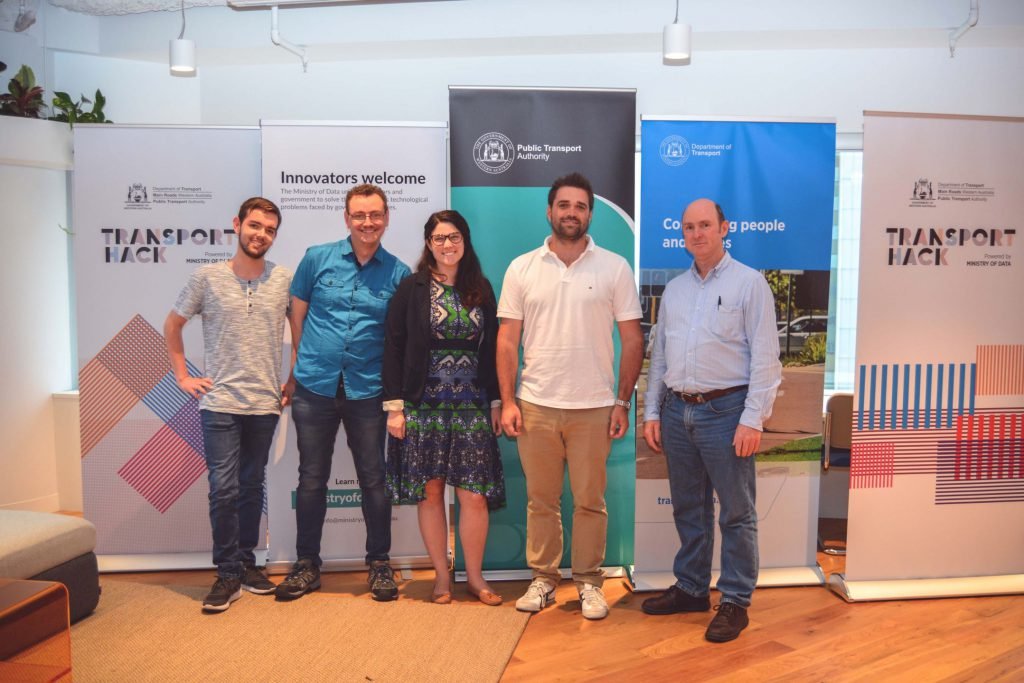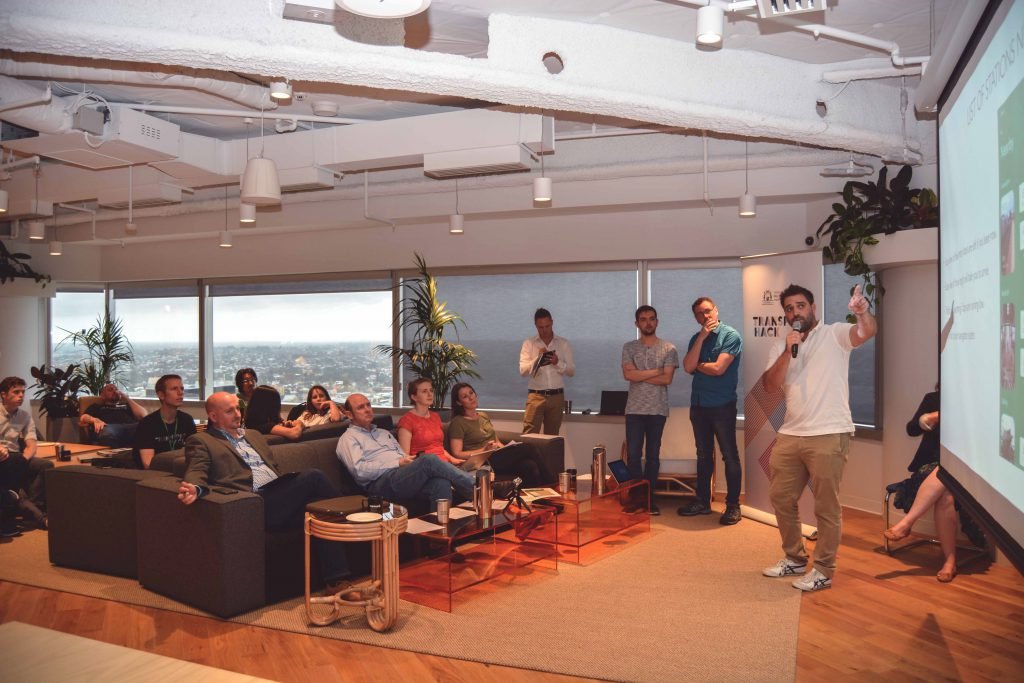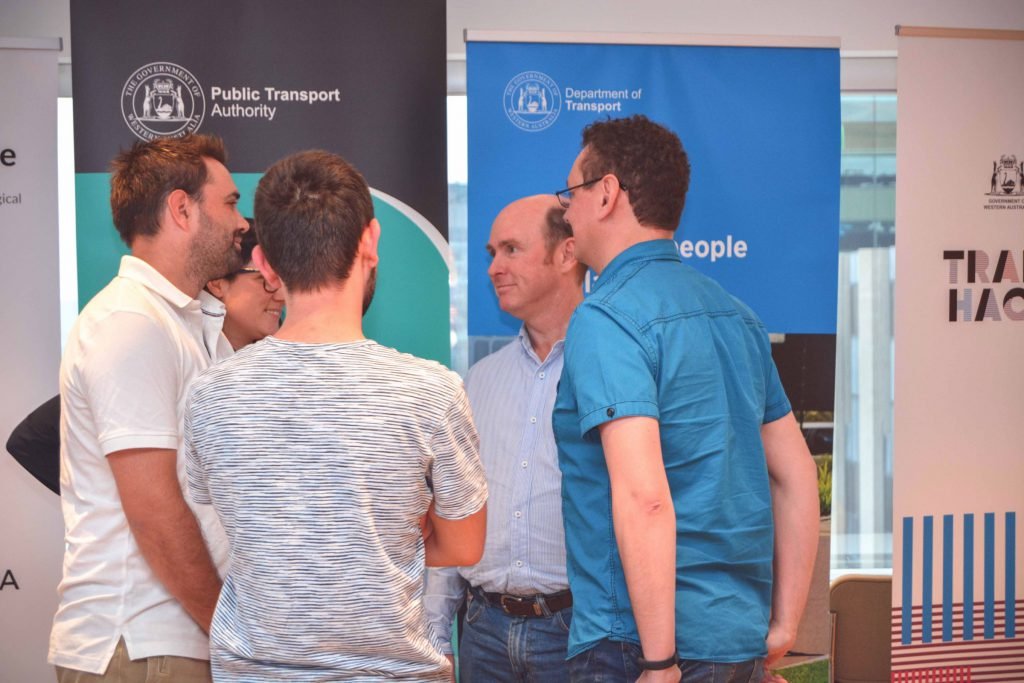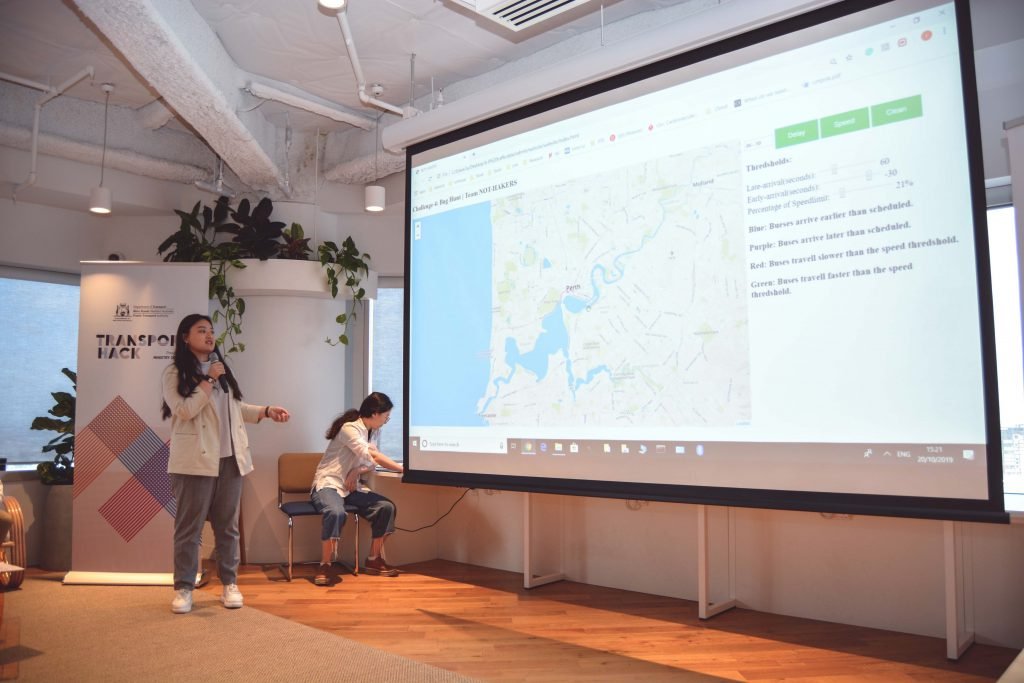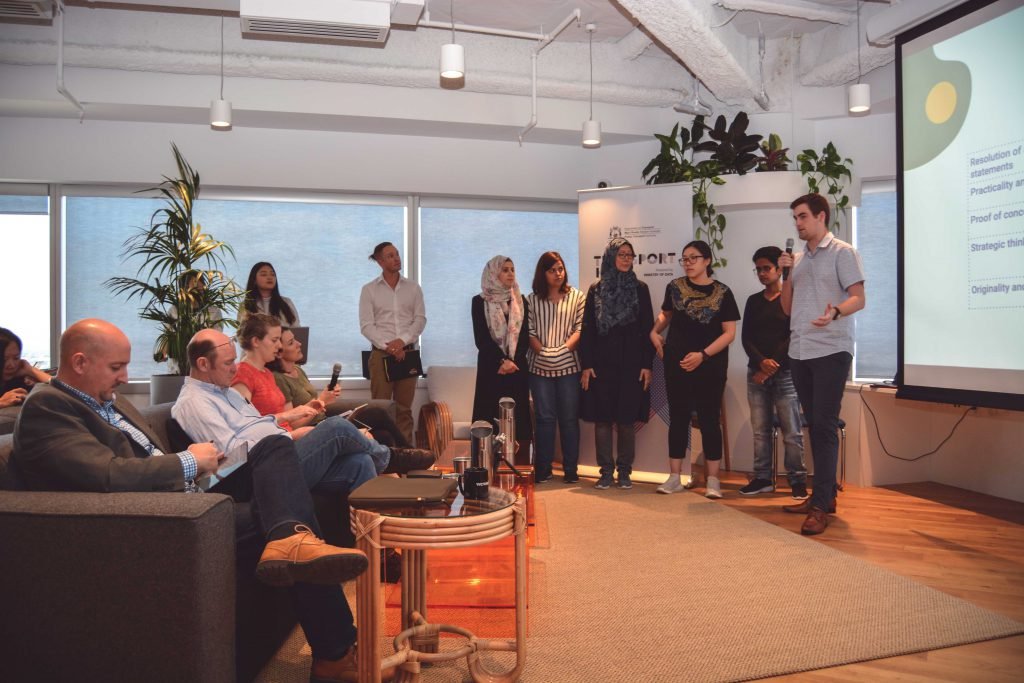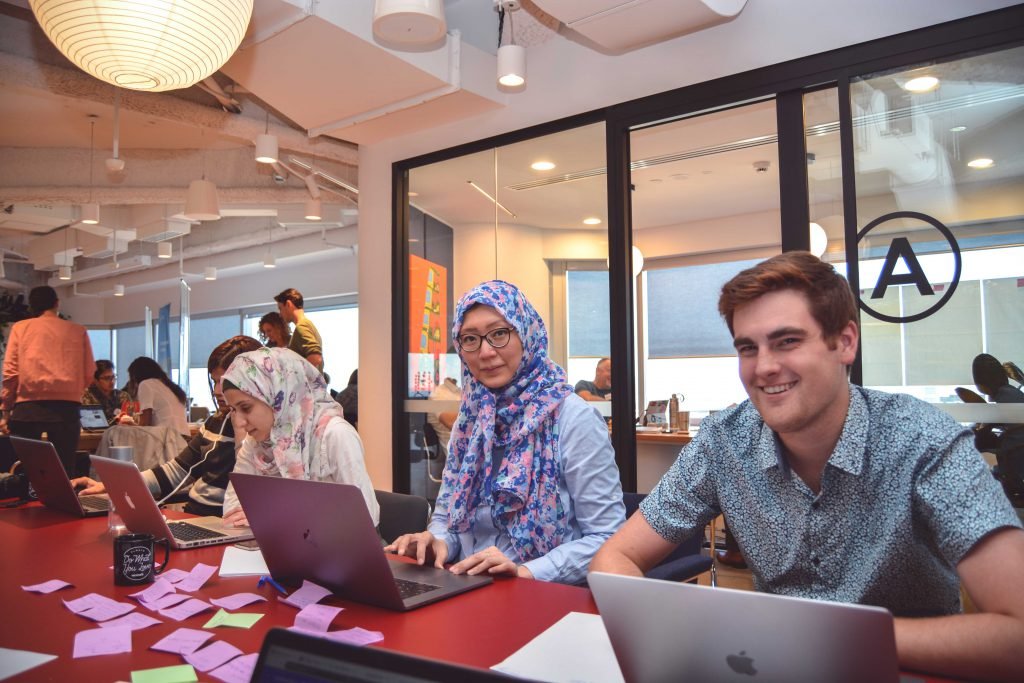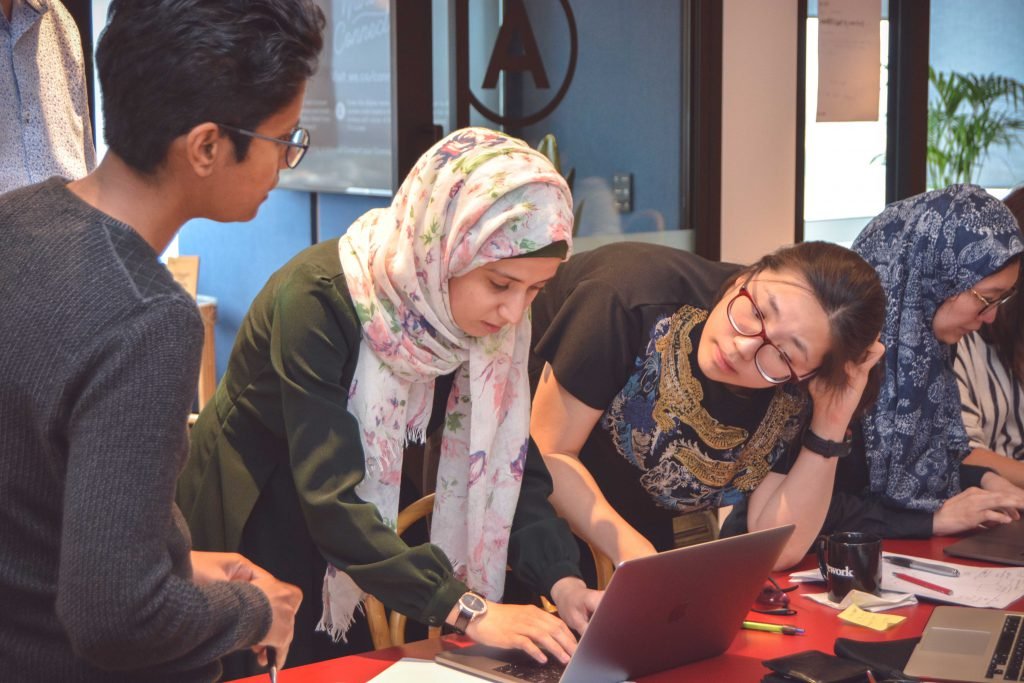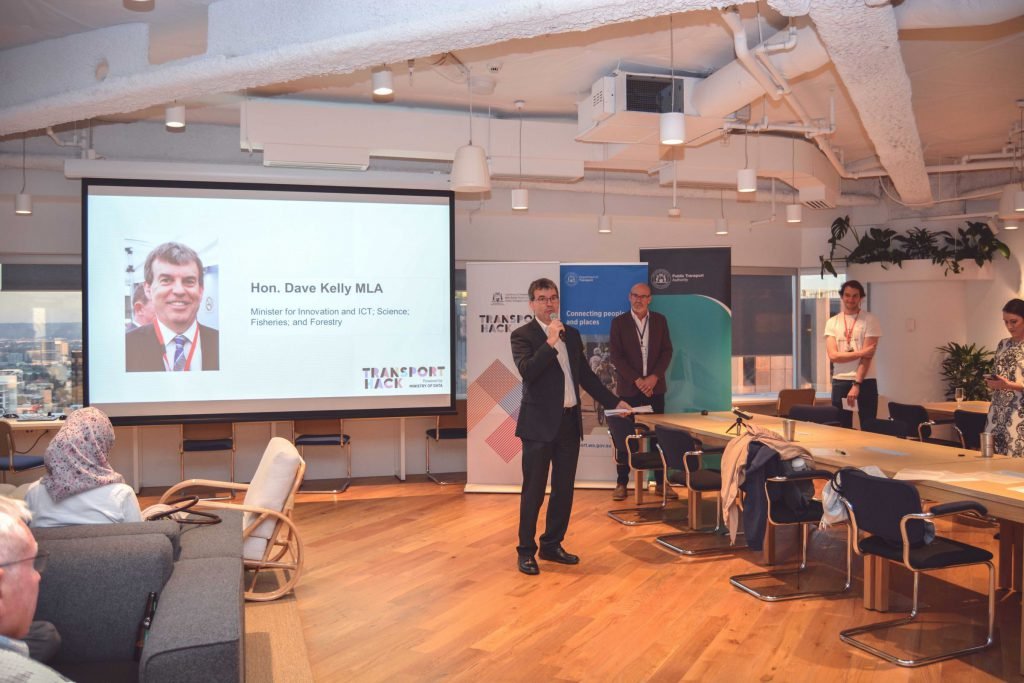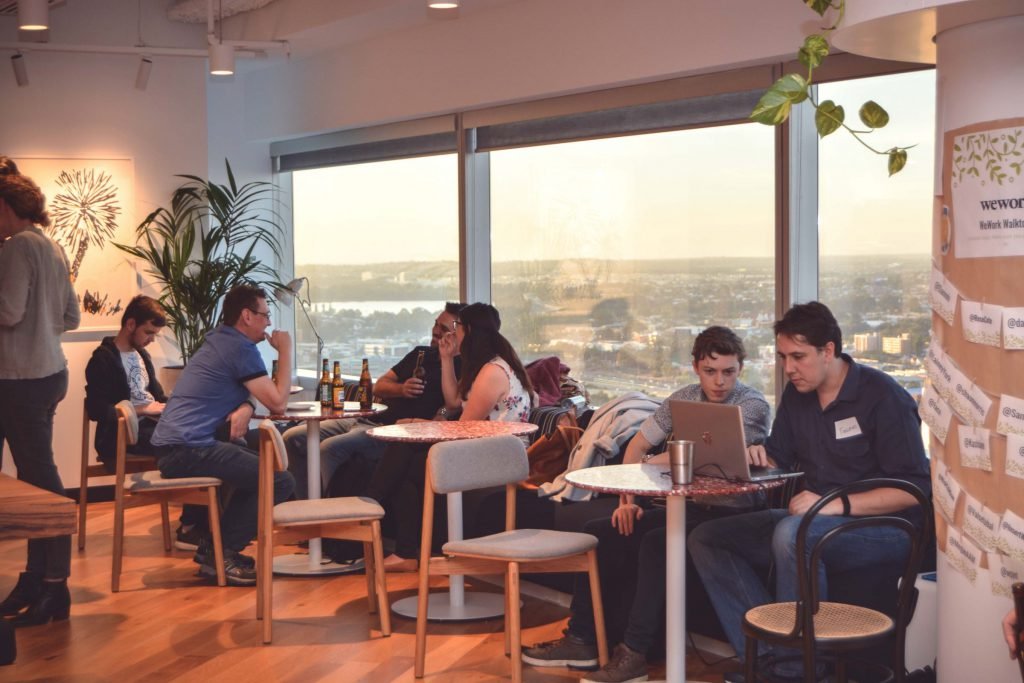
TransportHack – Incredible teams and transport solutions
The Transport Portfolio and Ministry of Data is proud to announce the winners of their hackathon, TransportHack, which was held between the 18th and 21st of October at WeWork in the Perth CBD.
Four winning teams jointly collected $8,000 in cash prizes and more, with ‘Rage Reduction Systems’ taking first place and $4,000.
TransportHack is the first hackathon jointly hosted by the Transport Portfolio, comprising of the Department of Transport (DoT), Main Roads Western Australia (MRWA) and the Public Transport Authority (PTA), in partnership with the Ministry of Data (MOD).
The event attracted 70 participants, 12 teams, 16 mentors, and one state minister.
The winners for each of the available prizes were announced on the afternoon of Sunday 20th October 2019 after the careful consideration of the judging panel. The judging panel included: Annabelle Fisher from PTA, Justin McKirdy from DOT, Dr Liz Dallimore from the WA Science Hub, and Dave Newman from MOD.

WINNERS
Rage Reduction Systems
Rage Reduction Systems, made up of software professionals, Jason Seel, Daniel Maddern, Chloe Marshall, and Nick Jordan, won first place at TransportHack with their application that monitors and predicts current and future availability of Transperth ‘Park and Ride’ facilities to 3 parking bays, using real-time data and a predictive machine learning algorithm.
Rage Reduction Systems took home a $4,000 cash prize.
RUNNERS UP
The Meteorites
The Meteorites made up of Transport and Urban Planners, Giles Graham, Angela Zhang, Justin Storer, and Jake Schapper, won second place at TransportHack with their ‘Transport Champ’ application aimed to motivate and reward public transport patrons on their usage of the system. The Meteorites leveraged Transperth, cycling network, and vehicle data to create their own frameworks and custom metrics to power their solution.
The Meteorites took home a $2,000 cash prize.
JUDGE’S DISCRETION PRIZE
NOT-HAKERS
Team NOT-HAKERS, made up of Research and Data Professionals – Yan Ji, Juan Lu, Xin Hou, and Yun Tang – won the Judge’s Discretion Prize with their interactive map designed to identify opportunities where bus priority measures could improve efficiency of the road network. Designed to tackle the Bug Hunt challenge, the team’s solution visualises areas where buses typically get delayed, or arrive behind schedule by combining bus route, schedule, location and road speed data.
NOT-HAKERS took home a $1,500 cash prize.
BEST YOUNG TEAM
Peaky Blinders
Peaky Blinders won Best Young Team at TransportHack with their application that aims to help Transperth patrons make more informed decisions about using public transport around peak and off-peak times. The solution designed for the challenge, ‘Preparing for a brighter transport future’, also pitched to support the PTA spread peak bus usage. By leveraging SmartRider tag onboarding and GTFS stop times, Peaky Blinders can recommend routes based on peak time and bus capacity.
A team of young and talented PhD Candidates, Software Professionals and an Urban Planner, Peaky Blinders is made up of Areej Alsini, Afagh Malek, Aditi Basu, Jiaranai Keatnuxsuo, Sanabel Abu Jwade, and Lachy Gatland.
The Peaky Blinders took home a $500 cash prize, and each get 6 months membership to Bloom Labs.
More Photographs
The TransportHack Challenges
Together with the Transport Portfolio, which includes the Department of Transport, Main Roads Western Australia and the Public Transport Authority, we have endorsed the presented challenges for their relevance and value to the industry – giving them market for commercialisation from the start.
Download all the Challenge Statements
CHALLENGE 1
Mode share to stations
How might we better: Understand how passengers access train stations
CHALLENGE 2
Improving Information Accuracy
How might we better: Identify and/or correct inaccuracies of online journey information?
CHALLENGE 3
Connecting People and Places
How might we better: Understand how people move around the transport network?
CHALLENGE 4
Bug Hunt
How might we better: Identify and unlock constraints within the transport network?
CHALLENGE 5
Preparing for a brighter transport future
How might we better: Improve network efficiency through higher vehicle occupancy?

